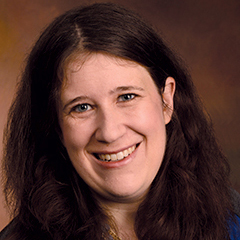
For years, the industry has been saying, “We are over-regulated.” The subtext is really: “Trust us. We know what we’re doing.”
Never is this more true than when addressing emergency planning.
Sen. Ron Wyden (R-OR) blasted the Centers for Medicare & Medicaid Services’ attempt to dial back the need for emergency preparation in nursing homes in a letter last week. Wyden reminded Administrator Seema Verma of some of the highlights of his recent report, “Sheltering in Danger,” which addresses problems in planning around hurricanes Irma and Harvey in 2017. The report is incredibly critical of the lapses that resulted in death and injury of residents, essentially arguing that they were greatly failed by the facilities that were supposed to take care of them.
But in addition to wanting more, rather than less, regulation for emergency planning in nursing homes, Wyden makes a fairly convincing argument that the cost savings for facilities under the CMS plan would be minimal. Eliminating annual review of emergency plans would save facilities and average of $1,632 a year, he writes, while scaling back training would save an average of $525 annually. Rolling back plan testing would save affected facilities around $243 a year.
So let’s assume that the CMS plan is more about supporting the White House’s pledge to curb regulation than it is about cost. Yet it begs the question: If there were fewer or no requirements, would facilities conduct these drills, provide training and be adequately prepared for a disaster?
Perhaps yes, if the recent case of Cypress Meadows is any indictation. By all accounts, staff acted heroically during the 2018 Camp Fire. Maybe that’s a function of training and a good plan, and it would have happened regardless of regulation.
Yet on the senior living side, which has fewer regulations, Oakmont Senior Community has been embroiled in lawsuits since a massive 2017 wildfire. According to a settlement last week with the state, staff received inadequate training to deal with the crisis.
Certainly I sympathize with the desire of providers to spend less time with paperwork and more time with residents, and of financial constraints around disaster drills. Reasonable people can feel less regulation is the answer.
But to me, Wyden raises a major point in noting the high rate of turnover at nursing homes.
“As a result, at any given point in time, many facilities will have front line and managerial staff who have very little experience working together, and may not have a clear understanding of their roles and responsibilities in an emergency response. In sports, a head coach would be loath to field a team that has not practiced together for an important game; CMS should not allow nursing homes to go into an emergency without sufficient preparation and practice.”
I’m as shocked as anyone that a sports analogy swayed me, but the senator is right. Trimming emergency planning regulations is less about saving money or helping providers than it is about following a principle. And that, I believe, could lead to more residents — and staff — being hurt.
A question I find myself asking on a regular basis is, “What do we owe each other?”
That’s a direct result of my love for the show “The Good Place,” a comedy that engages with deep and difficult ideas about what it means to be a good person. If that sounds more challenging than what you’re seeking, here are some other selling points: It’s a show you can watch with your family; star Ted Danson is a national treasure; and a recent episode followed a character who works in a retirement community.
While elements of that character handing out medication willy-nilly made me cringe, it also made me think about how much our concepts of long-term care rely on people wanting and trying to do the right thing. We assume no one enters the field for the money, and that many feel a spiritual call to help the elderly. We tend to assume our colleagues and staff, on a daily basis, come in and work long hours in a tough field not just because they need a job, but because they want to be of service. In short, we want to believe we are surrounded by good people.
Follow Senior Editor Elizabeth Newman @TigerELN.




